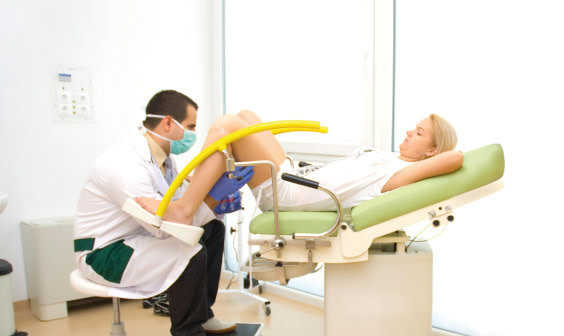Health Watch: I Screen, You Screen

Christmas comes but once a year. So, traditionally, did a woman’s Pap test. But the most recent guidelines from the American Cancer Society and the US Preventive Services Task Force actually recommend that women be screened less often. Though it may seem counterintuitive to advise fewer screenings, numerous tests aren’t always the right choice, says Michelle Berlin, MD, MPH, vice chair of the OHSU department of obstetrics and gynecology and associate director of the OHSU Center for Women’s Health.
“A Pap test is a screening test,” Dr. Berlin says. “Just like all screening tests, it may not pick up everything, or it may show that something is there when it isn’t. This second case is called a ‘false positive’ test; the possible harm in that is that as we try to determine why the test was positive, we may end up performing procedures women may not need.”
Those procedures may include a colposcopy to take a small biopsy (about the size of a match head) or a loop electrosurgical excision procedure (LEEP) to remove a lesion from the cervix. Risks might be bleeding or damage to the cervix, which could affect a later pregnancy. “The risks aren’t high, but they’re ones you don’t want to incur if you don’t need to,” Dr. Berlin adds. “That said, there are plenty of times we do need to do a colposcopy and/or a LEEP.”
The new guidelines recommend that women 21 to 65 have a Pap test every three years. If they prefer, women from 30 to 65 years old can go every five years if they have a Pap test and a test for human papillomavirus (HPV) at the same time and both are negative. Women under 21 don’t need a Pap test. HPV is very common—80 percent of women have the virus by age 50, and for most of them, it’s not a problem. However, HPV has also been shown to cause cervical cancer, so regular Pap tests still remain essential.
But every woman is different, Dr. Berlin cautions. Ultimately, it’s up to each woman to ask her health care provider what tests she should get done, and when. “Women tend to think an annual exam is just for a Pap and breast exam,” she says. “But women—and men—need to see their health care provider on a periodic basis regardless.”















